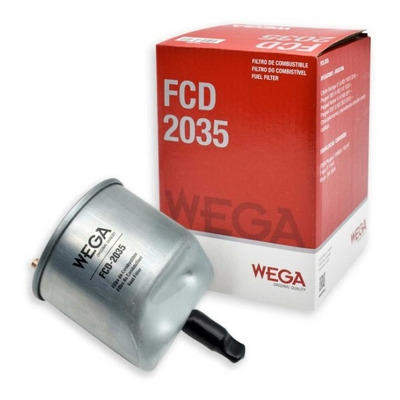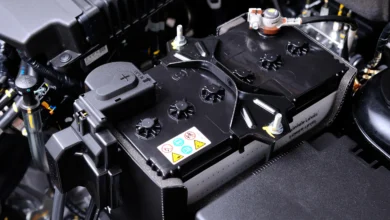FCD2035: A Complete Overview and Practical Guide

FCD2035 is a technical term associated with critical components found in various electronic systems, typically used in automated processes, control circuits, or industrial machinery. Understanding the specifications, applications, and importance of FCD2035 can be essential for industries that rely on high-efficiency control modules to optimize performance and ensure safety in operations. This article provides a comprehensive breakdown of FCD2035, exploring how it functions, where it is applied, and why it matters across different sectors.
What is FCD2035?
FCD2035 refers to a specialized control module or interface component integrated into electronic or industrial automation systems. While it may not be widely known to the general public, it plays a vital role in controlling mechanical processes. These modules are often found in environments that require precise feedback mechanisms for operations such as motor control, HVAC systems, or robotics.
The term “FCD2035” can also indicate a specific model from manufacturers specializing in field control devices (FCDs), which are built to manage temperature, pressure, motor speed, or data communication within industrial setups.
Key Features of FCD2035 Modules
- Advanced Control Algorithms
FCD2035 units are built with sophisticated algorithms that allow for seamless operation of connected equipment. They monitor various input signals—such as temperature, current, or speed—and make automatic adjustments in real time to ensure systems stay within safe operating parameters. - Compatibility with Multiple Protocols
These control modules are designed to integrate with a wide range of communication protocols, including Modbus, CAN bus, or EtherCAT, enabling smooth interaction between different parts of an automated system. Their adaptability makes them suitable for a wide variety of industries, including manufacturing, energy management, and transportation. - Fault Detection and Diagnostics Capabilities
FCD2035 controllers feature built-in fault detection systems that provide early warnings for abnormal operations. This helps in preventive maintenance, reducing downtime, and ensuring a high degree of system reliability. The diagnostic capabilities also allow operators to identify issues remotely, minimizing the need for on-site repairs. - Energy-Efficient Operation
Many FCD2035 models incorporate power-saving modes and efficient load management, making them suitable for green energy initiatives. These features reduce operational costs while maintaining optimal performance, particularly in industries focused on sustainable production practices.
Applications of FCD2035 in Key Industries
- Industrial Automation
In industrial settings, FCD2035 modules are frequently used to control motors, conveyors, and other automated machinery. They enable synchronized movements, ensuring that machines operate efficiently and safely without human intervention. - Building Management Systems (BMS)
HVAC systems within modern buildings rely on sophisticated control units like the FCD2035 to regulate heating, ventilation, and air conditioning systems. These controllers adjust parameters such as temperature and airflow to maintain comfort levels while minimizing energy usage. - Renewable Energy Systems
FCD2035 units play a crucial role in solar and wind power systems, where they manage the flow of energy from renewable sources to storage units or the grid. The precise control ensures optimal power generation and minimal wastage. - Robotics and Transportation
In robotics, FCD2035 modules are used to control robotic arms and other automated tools that require precise coordination and stability. Transportation systems, such as rail networks or electric vehicles, also rely on these units for smooth operation and safety monitoring.
Why FCD2035 Stands Out: Benefits and Advantages
- Scalability and Customization
FCD2035 units are highly scalable, allowing them to fit seamlessly into both small and large systems. Their modular design means they can be customized based on specific industry needs, providing unparalleled flexibility. - Remote Monitoring Capabilities
With the rise of IoT (Internet of Things) technologies, FCD2035 controllers offer remote monitoring features that allow operators to track performance and identify potential issues from anywhere. This feature enhances operational efficiency and reduces the need for constant on-site supervision. - Reliability in Harsh Environments
Many FCD2035 modules are built to withstand extreme conditions, such as high temperatures, dust, or vibrations, making them ideal for outdoor industrial applications and heavy-duty equipment. - Compliance with International Standards
These controllers are often manufactured to meet global standards, including ISO 9001, CE, or UL certifications, ensuring they meet quality and safety benchmarks required in international markets.
How to Optimize the Use of FCD2035 in Your Operations
- Understand System Requirements
Before integrating FCD2035 modules, it is essential to analyze the specific needs of your system to ensure compatibility. This involves checking voltage requirements, load capacity, and communication protocols. - Regular Maintenance and Software Updates
To maintain peak performance, it is important to perform regular maintenance checks and ensure the firmware or software is up to date. These updates often include performance improvements and bug fixes that enhance the module’s functionality. - Train Your Team
Operators and technicians should receive proper training on how to install, configure, and troubleshoot the FCD2035 modules. A well-trained team ensures smooth integration and minimizes disruptions. - Monitor for Early Warning Signs
Make use of the diagnostic tools and fault detection systems built into the FCD2035. Monitoring the system continuously can prevent minor issues from turning into major operational failures.
Conclusion
FCD2035 modules are essential components in modern automation, offering precision control, energy efficiency, and fault detection capabilities that cater to a wide range of industries. Whether you are involved in manufacturing, energy management, transportation, or building maintenance, these controllers ensure your operations remain smooth, efficient, and reliable.
With scalable architecture and advanced diagnostic tools, FCD2035 not only meets today’s operational needs but also prepares businesses for future technological developments. Implementing these modules effectively can improve productivity, reduce costs, and enhance sustainability, making them a valuable asset in any automated system.





